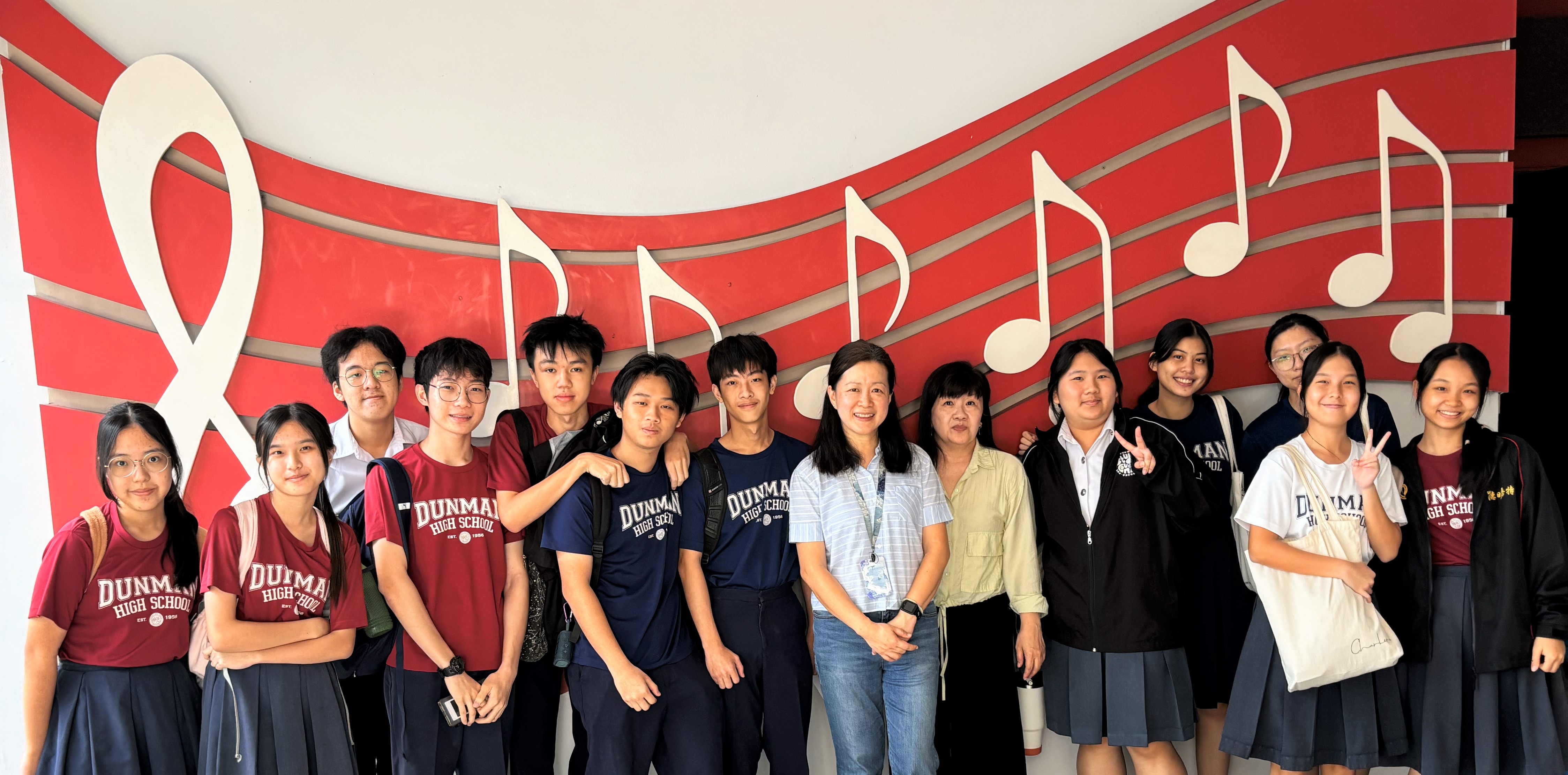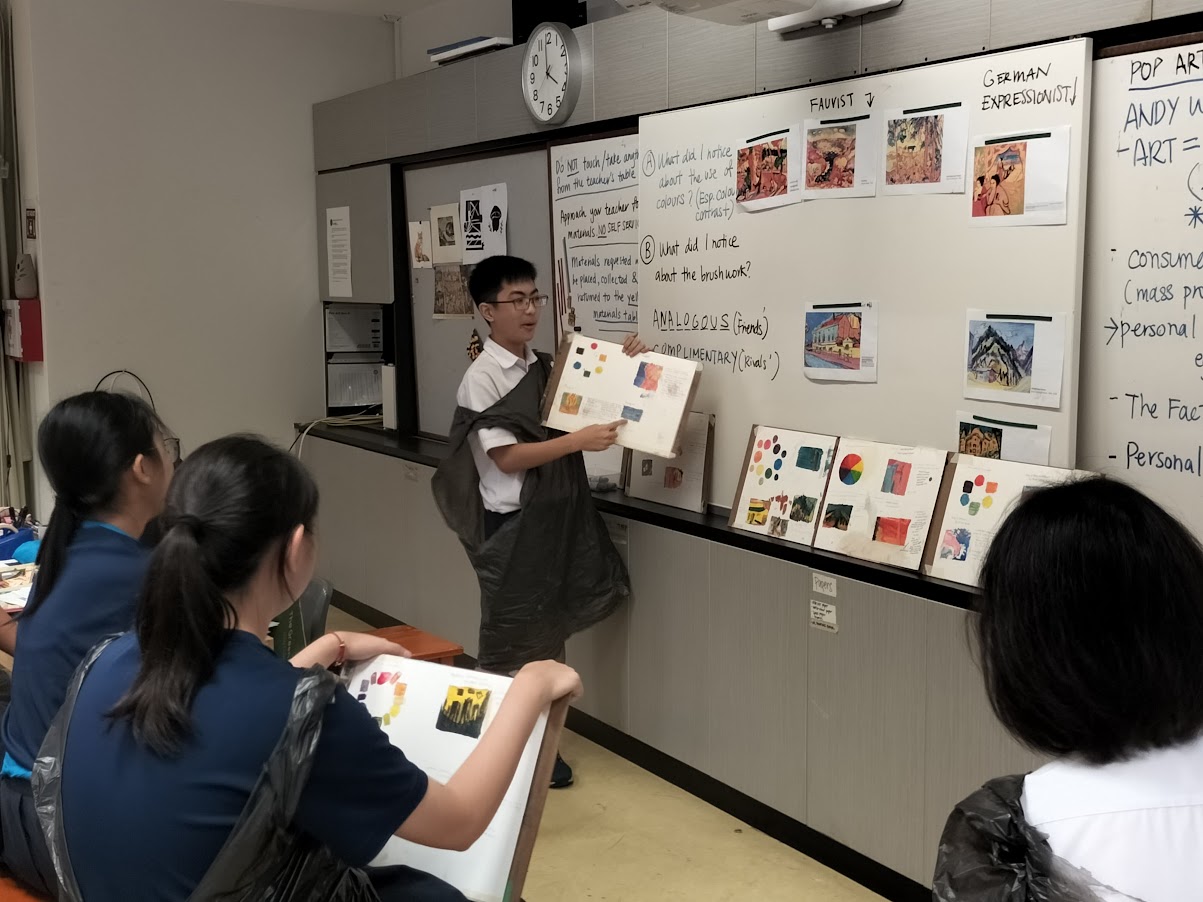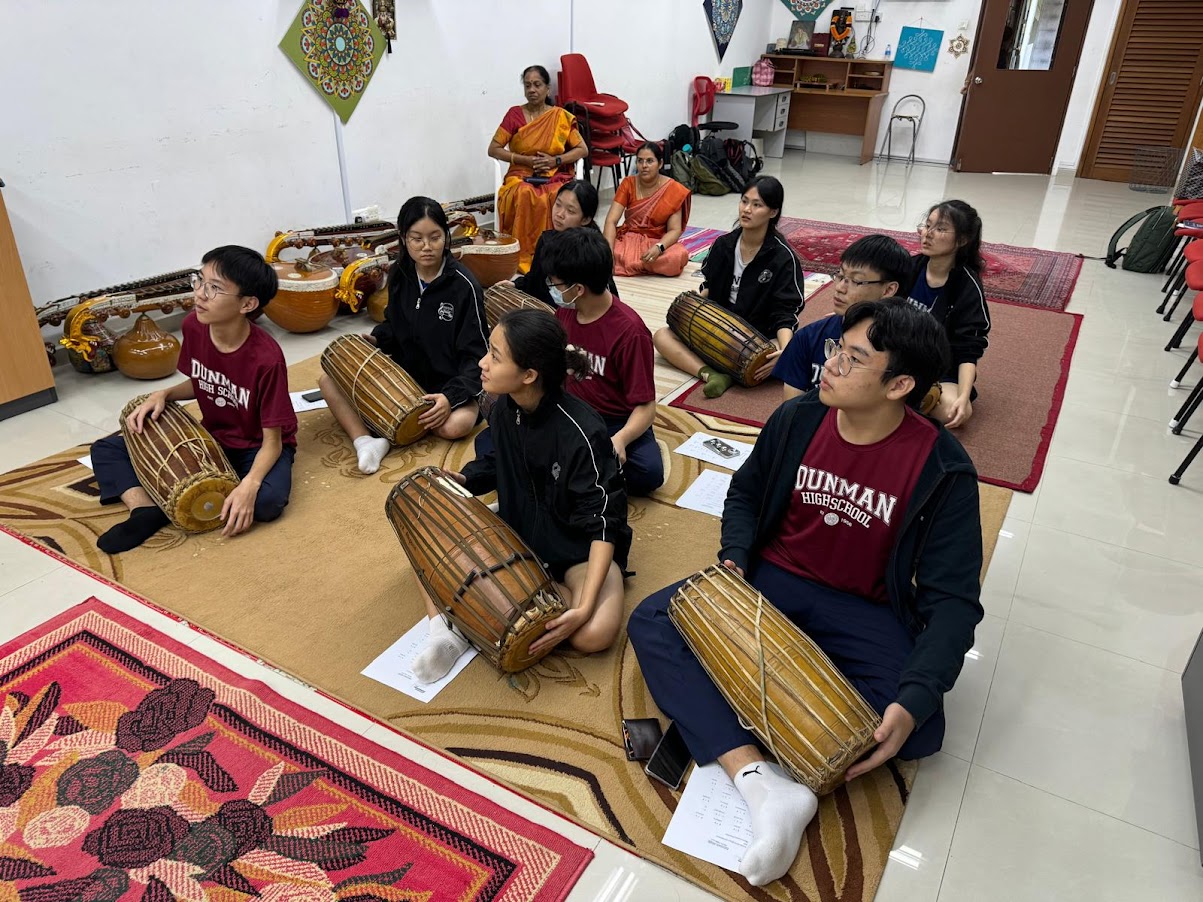Aesthetics Programme
The Aesthetics Department seeks to nurture students with the ability to appreciate the aesthetics and the skills to participate in the creative process of arts-making. It reaches out to the entire cohort of lower secondary students through the Art, Music and Life Skills Programme (LSP) curriculum.

Curriculum
For the more artistically or musically-inclined students, the Aesthetics Department provides opportunities to develop their skills and widen their exposure to a broad range of genres and repertoire through the Music Elective Programme (JH) and Art Special Programme at Junior High, and the Music Elective Programme (SH) and H2 Art at Senior High.
|
Subjects/Programmes |
|---|
|
Content
Art & Art Special Programme (ASP)

Through Art, students are involved in the three behavioural domains of seeing, expressing and appreciating, which take into consideration the cognitive, affective and psychomotor dimensions of art-making. The framework ensures that students are provided with opportunities to observe their environment, generate ideas, create artworks, discuss about art and value the role of art in society.

The Art Special Programme (ASP) is a platform for students who are committed and passionate about Art to further their Art education beyond the compulsory Art subject. Taken as an examinable subject in Years 1-4, it provides students with deeper understanding of various art elements and design principles, and possibilities to explore a wider range of media and techniques. ASP students are also given opportunities to visit museums and platforms to showcase their talents through exhibitions.
H2 Art

H2 Art offers students a comprehensive curriculum in art with a balance of art making and discourse learning experiences. Through the study of art, students develop fresh perspectives, an embodied understanding of art and its connection to the real world. It is a valuable course of study for students who are looking to complement their studies in other disciplines. By developing students’ visual literacy, critical faculties, and dispositions to engage in sustained practice as active artists and informed audience, H2 Art prepares students for a range of arts-related and humanities courses at university levels.
Music & Music Elective Programme (MEP)
In Music, the musical skills of listening, creating and performing are taught in an integrative manner. Through active musical experiences, students learn about the elements of music and apply these concepts in music-making.

The MEP curriculum aims to develop students' musical perception, broaden their knowledge of music from a wide range of genres and culture, and provides opportunities for creating and performing music, both individually and in groups. Learning takes place both in and out of the classrooms, through listening, performing, composing, as well as enrichment activities such as concerts, camps, masterclasses, workshops and competitions.
Life Skills Programme
The LSP seeks to provide students with the knowledge and skills for better understanding of the application of food nutrition and textiles. It inculcates positive attitudes that will empower students to make informed choices regarding food and nutrition in their daily lives. In the process, it empowers students to take responsibility in making choices and decisions about their health and daily needs.
Delivery
Development of Emerging 21st Century Competencies
Art and Music subjects are natural platforms for the development of 21st Century Competencies such as Inventive Thinking, Critical Thinking and Communication. Learning Art and Music requires understanding of abstract concepts and applying this understanding in analysing and describing a piece of artwork or music. To further sharpen their understanding, students are also required to compare pieces of works and highlight their differences. They need to be able to use appropriate technical vocabulary which demonstrates their understanding of the various concepts.
During the process of making artworks and music compositions, students explore various ideas and experiment with different techniques to express their thoughts and ideas. They also reflect on their progress and find solutions for the challenges they face along the way. This process develops critical and creative thinking, and allows for self-expression and collaboration.
Experiential Learning
We believe that students learn best when they participate in activities that involve active hands-on experiences like art and music-making. Through these experiences, students are better able to appreciate the relevant style and the artistic elements that work together to bring about the style. Hence, we strive to connect the teaching of theory with practical activities, which also bring about greater engagement, collaboration and development of artistic or musical skills.
Collaborative Learning
We believe in providing a safe and friendly environment for learning and creativity to take place spontaneously. When students collaborate in a small groups, they engage in problem solving or creative activities in a less threatening environment. Individual students’ voices are heard as they engage in exchange of ideas and views. Peer-learning takes place informally, leading to an enriched experience for all.
Assessment
Assessment for Learning provides useful and timely feedback on teachers’ instructions and students’ learning. This can be in the form of students’ assignment, class presentation, exit tickets and other forms of check during lesson time.
Weighted Assessment can be considered as Assessment for Learning when data collected during the assessment is used for improvement of future lessons. Students are also encouraged to learn from the assessment and clarify their misconceptions, thereby leading to greater learning.
Assessment Methods
Assessment of Learning is where the results determine the placement of a student after the assessment.
Some of the common assessment methods apart from pen-and-paper assessment:
-
Coursework: This can be a musical composition or a visual art-work which takes anytime from a few weeks to a few months to complete. During the process, students go through stages of idea generation, conceptualisation, experimentation and development of actual work.
-
Solo and Ensemble Performance, with Viva Voce or Reflection Notes
-
Portfolio Assessment: Assessment is based on students’ portfolio. Teacher’s guidance is provided throughout in various modules.
-
Listening Test with or without music notation.

